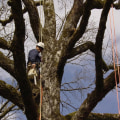Horticulturists must have innate skills in mathematics and science. They should be able to calculate growth rates. They must also be able to identify plants, plant pests, and ideal plant growth conditions. Some horticulturists can work on developing new varieties of plants.
Horticultural professionals can greatly benefit from having a high level of scientific knowledge. This can help you earn your degree and can also be very useful during your career. This ability is advantageous when performing tasks such as identifying different plants and pests. It's also helpful to have strong mechanical skills when working in horticulture.
These skills are especially important when working with greenhouses and irrigation systems. They allow us to understand mechanisms such as plumbing, ventilation and heating systems. Business Skills Are Useful for Horticulture Careers. For example, marketing is especially important when working in the commercial sector.
These business skills can also help you when you are responsible for managing employees. Horticulturists Can Benefit from Possessing Legal Skills. It is important to have legal knowledge of current environmental and pesticide laws when working in this field. Similarly, it is essential to understand the regulations on the proper use of chemicals.
As these different rules tend to evolve, it is necessary to keep up with the latest developments and legal changes. The role is complex, involves the management of horticultural businesses and requires business and IT competence, along with scientific knowledge and traditional cultivation skills. Other positions include crop manager, production manager, horticulture manager and producer manager. Later, with more experience, you can participate in the management and business development of commercial enterprises.
Promotion depends on the development of practical and management skills, and geographical mobility may be necessary. A portfolio containing details of successful projects is a valuable aid to progress. To do so, you'll want to know that both employers who hire a horticulturist and those who list the horticulturist position on their resumes predominantly present Horticulture and Landscaping as the most common and important terms, respectively. But the list starts to diverge quickly with resumes showing Customer Service, Irrigation, and Fertilization in positions three, four, and five, while the work lists show a different pattern.
Do you know what you would put on the list?. Horticulturists use their knowledge of biology, ecology, chemistry and horticulture to ensure that plants grow properly and stay healthy. This includes tasks such as planting, watering, fertilizing, pruning and harvesting. They can also develop new varieties of plants through breeding or genetic engineering.
Horticulturists can also use their business management skills to help them grow their business and increase their profits. Effective communication skills can help horticulturists convey their ideas and instructions to others. Let's find out what skills a horticulturist really needs to succeed in the workplace. You don't need to get certified to work with horticulture, but earning accreditation can help you advance your career, grow your network, and establish you as a dedicated and highly qualified professional in your field.
Horticulturists will need to keep abreast of these developments to keep their skills relevant and maintain a competitive advantage in the workplace. They can use their leadership skills to train new horticulturists, help other horticulturists develop their skills, and lead teams of horticulturists to complete projects. However, more immediately, you can be prepared for your next opportunity or promotion by learning about the duties, responsibilities and skills required of a horticulturist and making sure that your resume reflects your experience appropriately. A four-year degree in horticulture will provide you with the knowledge and skills you need to become a successful horticulturist.
Horticulturists with commercial skills can open their own landscape, nursery or greenhouse design or maintenance companies. . .






